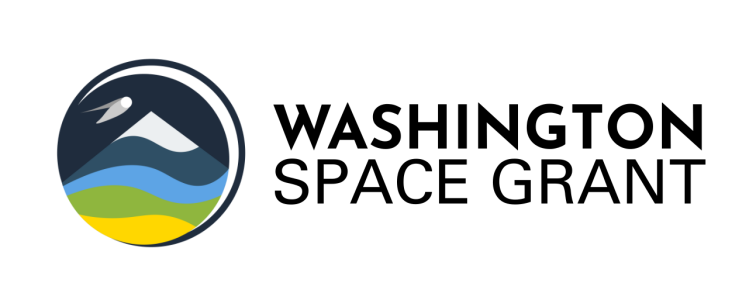It was, all things considered, perhaps not the best of launch conditions under which the UW’s chapter of the American Indian Science and Engineering Society (AISES) decided to go for the First Nations Launch challenge. Academic year 2020–2021 opened with the University of Washington still operating in remote instruction mode during the COVID-19 pandemic. Then, just before the end of the year, their National Association of Rocketry (NAR) mentor, WA Space Grant Director Robert Winglee, unexpectedly passed away.

But the UW AISES team persevered. Mike Harrell, lecturer in Earth and Space Sciences, stepped in as NAR mentor. And onward to Wisconsin the team went.
First Nations Launch (FNL), one of NASA’s Artemis Challenges, is a program of Wisconsin Space Grant. Founded in 2010, FNL supports tribal colleges and collegiate AISES chapters in building and strengthening their rocketry programs. The competition requires teams of undergraduate students to conceive, design, fabricate, and compete with high-power rockets. To date, undergraduate students from 24 U.S. and Canadian teams have participated, with more than 77 tribes represented.
2020–2021
The 2020–2021 team who, guided by team adviser Scott Pinkham, competed in the challenge was:
- Cayenne Matt (physics; astronomy)
- Charlie George (mechanical engineering)
- Osvaldo Aldaz (aeronautics and astronautics)
- Chyson Acoba (chemical engineering)
For their first attempt at FNL, the team’s goals were, as they told WI Space Grant in their team spotlight:
The team views this opportunity as a way to build a good foundation for interest and participation for the future of the UW AISES chapter. They hope to learn rocketry and system designs with hands-on-activities.

The team entered the FNL Moon Challenge, where the goal is to “design, test, and fabricate specific structural design components (nosecone/shoulders, bulkheads/centering rings, fins, avionics sled) of a lightweight rocket from raw materials.” And how did these dedicated rocketeers fare? An impressive 2nd place overall in the Moon Challenge with a total score of 83.74 points! They also placed 3rd in written reports and 1st in oral reports. Finally, the Altitude Award also came home to UW with the team.
2021–2022
For their next FNL appearance, UW’s AISES team entered the Mars Engineering Challenge: “Teams shall design, test, and fabricate all structural components of a lightweight rocket from raw materials.”
The team continued to achieved high honors for their work, coming in 2nd place overall in the Mars Challenge and placing 3rd in written reports.

The 2021–2022 AISES rocketry team consisted of:
- Charles George (electrical engineering)
- Kiyoshi Oshiro (aeronautics and astronautics)
- Osvaldo Aldaz (aeronautics and astronautics)
- Isabel Ellison (pre-sciences)
- Jea Heo (mechanical engineering)
- Gage Santa Cruz (engineering)
- James Tenorio (environmental engineering)
They were once again guided by Scott Pinkham, adviser, and Mike Harrell, NAR mentor.
Support from WA Space Grant
Washington NASA Space Grant Consortium has been very proud to support the UW’s AISES chapter as they build their rocketry team and compete in the First Nations Launch challenge. In autumn 2020, Director Winglee provided rocketry mentorship to the group. For the team’s journey to Wisconsin to compete in April 2022, WA Space Grant was able to provide travel support thanks to donations made to the Friends of WA Space Grant fund at the UW.

